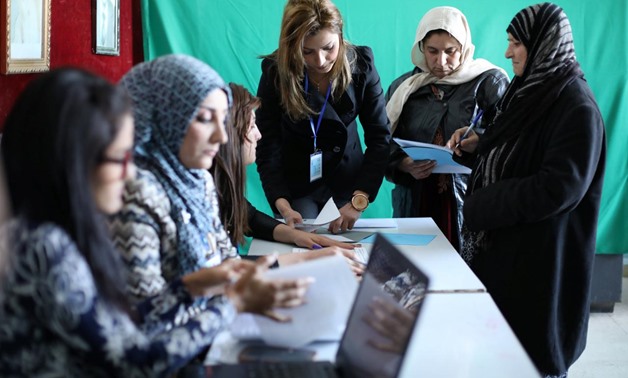
Syrian Kurds hold local elections, press on with autonomy plans
ERBIL/SULAIMANIYA, Iraq - 30 September 2018: Kurds voted in a parliamentary election in their semi-autonomous region in northern Iraq on Sunday, with the two dominant parties widely expected to extend their power sharing rule despite growing discontent.
The poll comes a year after the region of six million made a failed bid to break away from the rest of Iraq in a campaign headed by Masoud Barzani, leader of the Kurdistan Democratic Party (KDP).
Barzani has retained a support base even though his independence drive was crushed by the Baghdad government, and splits within the Patriotic Union of Kurdistan (PUK) mean the KDP could gain the upper hand in their two-party ruling coalition.
A weak opposition has been unable to challenge the KDP-PUK alliance. Both parties have and have dominated Kurdish politics for decades.
"I don’t know who I will vote for but our family has always supported the KDP. My son will pick a candidate for me," said Halima Ahmed, 65, as she walked with a cane in the city of Erbil, the seat of the Kurdistan Regional Government (KRG).
The oil-producing region's unsuccessful independence bid, stagnant politics, unpaid public sector salaries and corruption have undermined the population's faith in politics and turnout shrank in recent elections. The leading parties say they do not expect more than about 40 percent of the 3.85 million registered voters to go to the polls, which close at 6 p.m. (1500 GMT). Preliminary results are expected within 72 hours.
There are 111-seats up for grabs in Sunday's election, including 11 reserved for ethnic minorities.
Kurdish opposition parties did poorly when Iraq held federal elections in May. But multiple allegations that the KDP and PUK had committed election fraud - not confirmed in a subsequent recount - may sway voters in their favour.
Gorran, the main opposition movement, has been weakened by infighting and the death of its founder and leader Nechirvan Mustafa last year.
"I wanted to make sure I voted early. I gave my vote to Gorran and hope for the best," said Omar Mahmoud Abdullah, 52, at the polling station set up at Shireen School in Sulaimaniya, stronghold of the PUK.
An another polling station in Sulaimaniya, lawyer Hassan Dalloush, 65, also said he was voting for the opposition.
"If there’s no fraud in this election, I’ll feel good about it. But the parties in power always want to commit fraud, it’s the only way they stay in power," he said.
"I will never vote for the parties in power. Today I voted for the opposition."
The September 2017 held despite pressure from Baghdad and threats from Turkey and Iran.
The referendum in September 2017 promised to set Iraq’s Kurds on a path to a homeland and nearly 93 percent voted in favour of independence, despite pressure from the central government in Baghdad and threats from neighbouring Turkey and Iran.
A swift backlash from Baghdad, including a military offensive in the region, dashed those prospects. Relations with the central government have improved, but the ordeal cost the Kurdish region territory as well as economic autonomy.
Nevertheless, some voters showed optimism about the future. Salar Karim arrived at a polling station with his wife and two young children, all dressed festively for the occasion.
"Today is a historic day for Kurds," Karim, 50, said. “We get to elect our parliament as is our duty. I feel good about today."

Comments
Leave a Comment